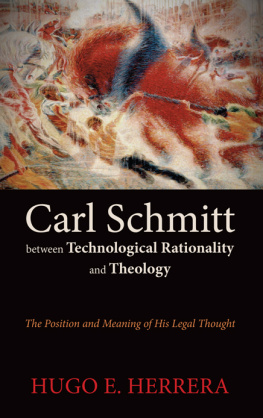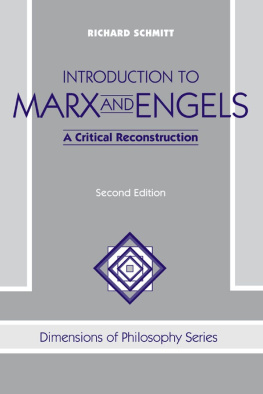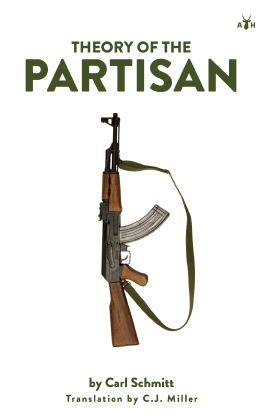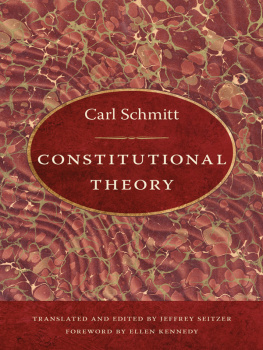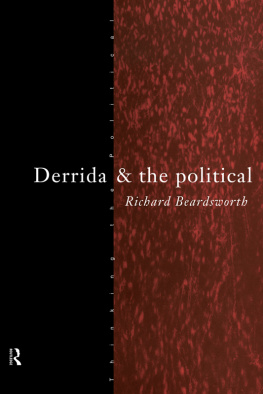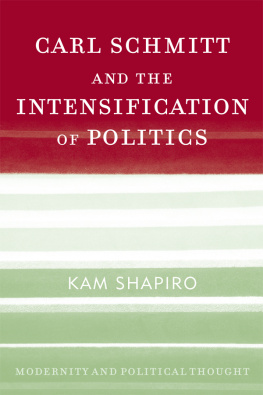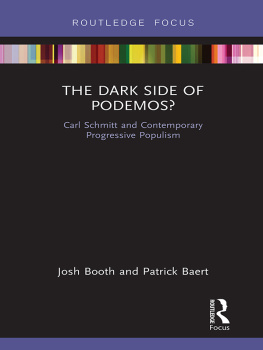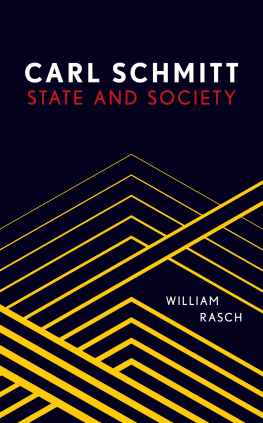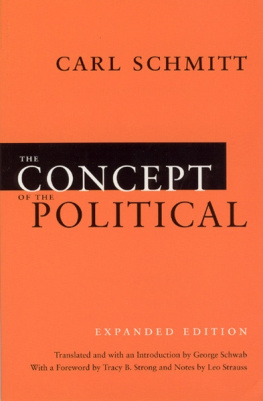More than 20 years have passed since the publication of Derridas Politics of Friendship (1993). The three chapters ( follows Schmitt in Ex Captivitate Salus where he enquires into the enemy with reference to Stirners The Ego and Its Own (1845) as well as Descartes Meditations (1641) and concludes that the enemy is the one who can put me in question, and the only one who can do so is the self, or the brother. The concept of the political thus loses its essence and self-destructs.
undertake an analysis of the new structure of the concept of the political which comes to the fore in Derridas reading. This new structure must be at the heart of any attempt to rethink constitutional theory after Derrida, as the concept of the political is central to Schmitts Constitutional Theory .
As noted above, Schmitt in Constitutional Theory seeks to spell out the implications of his analysis in The Concept of the Political . In the latter text he contends that the concept of the political is to be understood with reference to the potential of a friend-and-enemy grouping, with war as the most extreme consequence of this grouping ( CoP 28, 33). The political has no domain of its own, unlike for example religion, morality, aesthetics or economics. It instead refers to the degree of intensity of an existential relationship, that is, of a union or a separation, association or disassociation ( CoP 26; Herrero 2015: 103). The political can consequently be reached from any domain ( CoP 62; Schmitt 2002d: 308). The political is moreover inescapable, due to the animality, drives and passions at the heart of human nature ( CoP 5868). Meaning itself is for Schmitt ( CoP 35/ BdP 36) dependent on this antithesis whereby men may be required to sacrifice their lives, and authorized to shed blood as well as kill other human beings.
Schmitts attempt at strictly defining the political in The Concept of the Political is motivated by the problem of depoliticisation, which he observes in the disappearance of the enemy in the twentieth century. In Constitutional Theory , Schmitt expresses a similar concern about depoliticisation, specifically insofar as the conception of the modern liberal constitution is concerned. He argues in this respect that the political component of the modern constitution, which is repressed by liberal thinking through its privileging of the rule-of-law component ( below).
turning against the self, which structures the political. This turning against the self of the political can, as Derrida shows, be understood with reference to the destructive drive in Freud, which is likewise preceded by a turning against the self. In placing Schmitt alongside Heidegger, we return to the (unified) concept of war in Schmitt mentioned above, with Heidegger seeking the originary sense of the Greek plemos . This involves a form of originary combat, not between human beings, but between the gathering of Being and its dissimulation. We also return here to phsis , which according to Heidegger is originally another name for Being and we look at Heideggers invocation of the philen (love, gift) of Being. Freud and Heidegger can in other words be read as pointing to that which gives rise to the friend-enemy distinction of Schmitts concept of the political, that is, to a force of self-destruction, or, translated in ethico-political terms, the gift, lovence, that is, a friendship beyond circular return.
In The Concept of the Political , in drawing a distinction between plemos (war between Greeks and barbarians) and stsis (internal strife), as well as between polmios/hostis (public enemy) and ekhthrs/inimicus (private enemy), Schmitt relies in a footnote on Platos Republic . Plato more specifically refers to civil war as an illness, which, as Derrida notes, is something else again [ ce qui est encore autre chose ] ( PoF 90/ PA 111).
The two names ( onmata ) which Plato invokes in the Republic , as Derrida ( PoF 91) points out, are supposed to rigorously name, in their legal purity, what belongs to nature. Derrida summarises Platos position as follows:
Sickness is then what emerges, an equally natural sickness, an evil naturally affecting nature. It [i.e. nature] is divided, separated from itself [ Celle-ci scarte delle-mme ]. When such an event occurs [i.e. Greeks fighting amongst themselves], one must speak of a pathology of the community. In question here is a clinic of the city. In this respect the Republic develops a nosological discourse; its diagnostic is one of ill health and dissension, a faction inside Greece . Stsis , the name that should apply to this hatred or to this enmity ( khthra ), is also a category of political nosography.
( PoF 92/ PA 113)
Schmitt is thus, on Derridas reading, correct to say that Plato draws a distinction between the two forms of disagreement ( diaphor ), that is, between plemos and stsis .
Plemos and stsis
Schmitt, as indicated above, appears to follow Plato in suggesting that only external war, that is, a war between Greeks and barbarians ( plemos ) would be real war, as compared to civil unrest, that is, fights between Greeks ( stsis ). This view corresponds with the reign of the jus publicum Europaeum (European public law), which lasted from the time of the Peace of Westphalia (1648) until its dissolution between 1890 and 1918 ( NoE 22739).
Private/public
Derridas next step is to destabilise the private/public distinction which Schmitt tries to draw. The stakes here are high, because the distinction between polmios (public enemy) and ekhthrs (private enemy), which as we saw Schmitt seeks to derive from Plato, is relied on by Schmitt to later view (and condemn) the re-invocation of the notion of a just war in the twentieth century (accompanied by a hatred of the enemy), as amounting to a depoliticisation.
The body politic, Derrida ( PoF 114/ PA 133) comments, should undoubtedly neatly ( proprement ) identify the foreign body of the enemy outside of itself [ le corps tranger de lennemi au-dehors], but it never succeeds in doing so. No pure distinction between the enemy within and the enemy beyond the body politic is thus possible.
Stsis and political theology
The strict distinctions which Schmitt attempts to maintain in The Concept of the Political are thus, by his own account, collapsing in the twentieth century. Viewed in these terms, The Concept of the Political would concern itself with the way in which
( PoF 109 n13/ PA 110 n2)
Derrida in the above passage relies on the double meaning of stsis as pointed to by Schmitt in PT II , in order to explain in a way the origin of this double meaning, as well as of the war of God with himself, and of mankind with itself. At stake in this radical re-conception of (political) theology can be said to be the origin of the distinction between friend and enemy, as well as of the other oppositions which play themselves out in Schmitt. In both Plato and Schmitt we thus find the contention that the two forms of dispute ( plemos and stsis ) are made possible by something else: in Plato this origin is to be found in the other of phsis (the de-naturalisation of nature in nature), and in Schmitt, in what can be referred to as a pre-ontological understanding of stsis . The basis for this reading of Plato and Schmitt, showing a differantial relation between forces, is inter alia to be found in Derridas engagement with Freud, to which we now turn.



